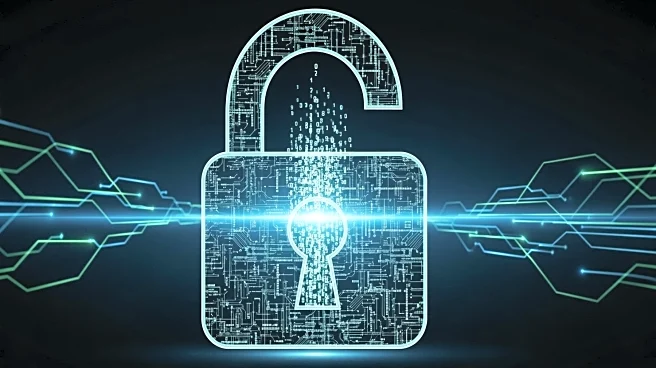What's Happening?
Russian hackers have reportedly stolen and leaked sensitive documents concerning UK military bases, including RAF Lakenheath in Suffolk, where U.S. Air Force F-35 and F-15 jets are stationed. The breach,
reported by the Mail on Sunday, involves files published on the dark web containing details about Royal Air Force and Royal Navy bases, as well as personnel information. The UK Ministry of Defense (MOD) and maintenance contractor Dodd Group have confirmed the breach and are investigating the incident. The leaked documents reportedly include visitor forms and security instructions, which could be exploited for phishing attacks. This incident follows previous data breaches involving the MOD, highlighting ongoing cybersecurity challenges.
Why It's Important?
The breach underscores the vulnerability of military installations to cyberattacks, particularly those involving sensitive information about U.S. military assets stationed abroad. The exposure of details about RAF Lakenheath, a key site for U.S. fighter jets, raises concerns about the security of NATO's defense infrastructure and the potential for further Russian cyber aggression. This incident could strain UK-Russia relations and prompt NATO to reassess its cybersecurity measures. The leak also highlights the broader issue of hybrid warfare tactics employed by state actors to destabilize geopolitical adversaries.
What's Next?
The UK MOD and Dodd Group are conducting investigations to determine the extent of the breach and prevent future incidents. The findings could lead to enhanced cybersecurity protocols across NATO member states. Additionally, Russia may face increased scrutiny and potential diplomatic repercussions from the international community. The incident may also prompt discussions within NATO about strengthening collective cyber defenses and sharing intelligence to mitigate similar threats.
Beyond the Headlines
This breach highlights the ethical and legal challenges of cyber warfare, where state-sponsored hacking blurs the lines between traditional military conflict and digital espionage. The incident may prompt a reevaluation of international laws governing cyber activities and the responsibilities of nations to protect sensitive information. It also raises questions about the adequacy of current cybersecurity measures in protecting critical infrastructure and the role of private contractors in maintaining security standards.










